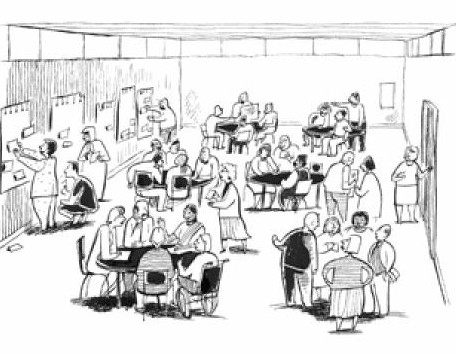The genesis of this blog originates from some of the work I did in graduate school at the Institute for Corporate Responsibility, an academic research body within the George Washington University School of Business. It also stems from some of the educational concerns I had as a graduate student, paying quite a bit for an education that I felt was bankrupt – educationally, culturally, humanly, and spiritually. I wanted to attend a program that truly aimed to provide a quality learning experience – I was quickly dismayed by many of the interactions I had and believed our institutions surely could do better. Before long I came across a wonderful text “This Book is Not Required” I wish I had read in undergraduate school since it speaks to the role the educational institution will most likely play and what the expectations should be; yet, being someone who wants to fully experience life to understand it, I’m not sure the text would have helped, but it did offer some consolation in the end.
I recall being told during our orientation (what they call ‘Institute‘) that of the four or so significant aspects of learning, we would be doing only a few but specifically we would not reflect on what we learned. I thought to myself, that’s one of the most important aspects of learning! and we will not be given the opportunity to reflect? Most importantly it was the energy in the room that struck me. We really were not given the space to communicate, nor were we given the structures to speak within. We would sit in a classroom for 6 hours a day, four days a week, for 2 years – and NEVER speak among each other as peers? Something is wrong with this picture. And the case method of teaching doesn’t do anyone educational justice in learning narrowly studied examples of ‘business in action.’ I also know that the lecture based form of learning is just about dead, too. This form of classroom learning should be removed from all but maybe 10% of the class; and to get there, we need to consider how we can better equip professors with the skills of facilitation, what I’ve proposed as facilitation committees — a weekly (or regular) meeting of all professors teaching in the school coming together to share how they plan to propel, inspire, and allow students to learn.
This last part is where this blog fits in. I believe that we need to create a conducive, fun, alive, and sacred trustworthy space for dialog to ensue. This way we can help each other learn but also we can begin working on our own prejudices, values, understandings, and views of the world in which we live.

